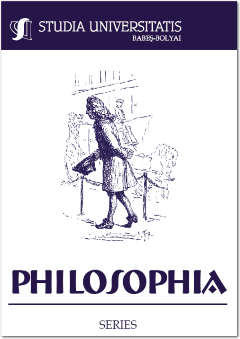ANSELM AND THE 14TH CENTURY CRITICISM. METAMORPHOSIS OF THE ONTOLOGICAL ARGUMENT IN THE LATE SCHOLASTIC TRADITION
ANSELM AND THE 14TH CENTURY CRITICISM. METAMORPHOSIS OF THE ONTOLOGICAL ARGUMENT IN THE LATE SCHOLASTIC TRADITION
Author(s): Daniel ComanSubject(s): Philosophy
Published by: Studia Universitatis Babes-Bolyai
Keywords: Anselm of Canterbury; Gregory of Rimini; Thomas Bradwardine; ontological argument; 14th century criticism; late scholasticism.
Summary/Abstract: Anselm and the 14th Century Criticism. Metamorphosis of the Ontological Argument in the Late Scholastic Tradition. The harsh debates that occurred in the late 13th century and early 14th century between Augustinians, Thomists and Scotists forced them to verify the orthodoxy of their own theses by comparing them to patristic sources. Anselm of Canterbury is one of the most reliable sources, according to some texts of the 14th century. The new theory of knowledge provides the opportunity of an elaborated analysis of the ontological argument by means of the new logical tools. But regardless of how the ontological argument will be refurbished, one thing persists: the ontological argument is used as a tool in proving the existence of God and getting an undoubted knowledge about this fact.
Journal: Studia Universitatis Babes-Bolyai - Philosophia
- Issue Year: 61/2016
- Issue No: Sp.Iss.
- Page Range: 23-36
- Page Count: 14
- Language: English

